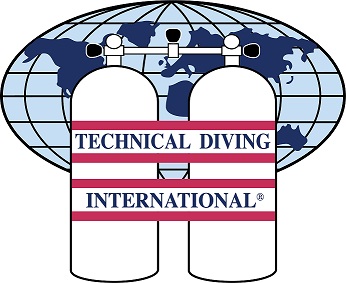| Home | Courses | Diving | Shop | Links | Contact Us |

.
|  |
.
 |
 |
 |
TDI CCR Air Diluent Course
TDI CCR Air Diluent Decompression Procedures Course
TDI CCR Helitrox Decompression Course
TDI CCR Mixed Gas Course
TDI CCR Advanced Mix Gas Course
TDI Combined Nitrox and Advanced Gas Blender Course
Technical Diving International (TDI) was formed in 1994 by some of diving's
most experienced instructors to bring technical applications of the sport to a
wider audience. TDI's library of training materials and texts have become known
as the industry's best and most professional resources. Most importantly, TDI
has the best safety record of all training agencies. With offices worldwide and
over 10,000 instructors teaching our programs, TDI has become the largest
international specialised dive agency.
The TDI CCR Air Diluent course (certification depends on unit used) is the basic
entry level certification for Closed Circuit Rebreather diving. The objective
of the course is to train divers in the benefits, hazards and proper procedures
for diving on a CCR to a maximum depth of 30m. What you learn Skills include: Qualification gained Pre-requisites Course structure Equipment MaterialsTDI CCR manual.
Cost: £1200.
Using the latest in technology CCR’s to maximize your gas supply of Nitrox and
provide the optimum breathing gas for any depth by maintaining a constant
partial pressure of oxygen (PPO2). During the dives (minimum of six) you'll
learn all the nesscery skills to conduct CCR dives to a maximum depth of 30m.
Upon successful completion, you will be able to perform dives using the
specific rebreather you were taught on, to a maximum depth of 30m, using an air
diluent with no decompression allowed.
To enrol on this course, you must:
5-days. With classroom, confined water session and 7 open water dives. 420
minutes underwater time required for certification.
You will need your own full set of diving kit. If you do not own a rebreather
unit, we can provide one for the duration of the course at a discounted rate.
Rebreather course prices are based on a minimum of 2 students on the course.
For one-to-one training, add £200 to chosen course price.
Prices excludes students gas costs, sofnalime and dive site/boat fees.
The TDI Air Diluent Decompression Procedures course is still an entry level
certification designed for divers already holding the CCR Air Diluent (No
decompression) certification or both TDI Advanced Nitrox and Decompression
Procedures. This will allow the diver to plan and make CCR dives to a maximum of
45m including decompression. What you learn Skills include: Qualification gained Pre-requisites Course structure Equipment MaterialsTDI Inspiration/Evolution CCR manual.
Cost: £1200.
Using the latest in technology CCR's to maximize your gas supply of Nitrox and
provide the optimum breathing gas for any depth by maintaining a constant
partial pressure of oxygen (PPO2). During the dives (minimum of six) you'll
learn all the nesscery skills to conduct CCR decompression dives to a maximum
depth of 45m.
Upon successful completion, you will be able to perform dives using the
specific rebreather you were taught on, to a maximum depth of 45m, using an air
diluent for formal decompression diving without direct supervision.
To enrol on this course, you must:
5-days. With classroom, confined water session and 7 open water dives. 420
minutes underwater time required for certification.
You will need your own full set of diving kit.
Rebreather course prices are based on a minimum of 2 students on the course.
For one-to-one training, add £200 to chosen course price.
Prices excludes students gas costs, sofnalime and dive site/boat fees.
The TDI CCR Helitrox Decompression course is still an entry level
certification designed for divers already holding the CCR Air Diluent (No
decompression) certification or both TDI Advanced Nitrox and Decompression
Procedures/Helitrox. This will allow the diver to plan and make CCR dives to a
maximum of
45m including decompression. What you learn Skills include: Qualification gained Pre-requisites Course structure Equipment MaterialsTDI CCR manual.
Cost: £1200.
Using the latest in technology CCR's to maximize your gas supply Helitrox and
provide the optimum breathing gas for any depth by maintaining a constant
partial pressure of oxygen (PPO2). During the dives (minimum of six) you'll
learn all the nesscery skills to conduct CCR Helitrox decompression dives to a
maximum
depth of 45m.
Upon successful completion, you will be able to perform dives using the
specific rebreather you were taught on, to a maximum depth of 45m, using
Helitrox
diluent for formal decompression diving without direct supervision.
To enrol on this course, you must:
5-days. With classroom, confined water session and 7 open water dives. 420
minutes underwater time required for certification.
You will need your own full set of diving kit.
Rebreather course prices are based on a minimum of 2 students on the course.
For one-to-one training, add £200 to chosen course price.
Prices excludes students gas costs, sofnalime and dive site/boat fees.
The TDI CCR Mixed Gas course is your next
step into closed circuit rebreather diving, with the addition of helium as a
diluent gas. The objective of the course is to train divers in the benefits,
hazards and proper procedures for CCR mixed gas diving, and to develop skills
suitable for CCR technical diving to a maximum of 60m. What you learn Skills include: Qualification gained Pre-requisites Course structure Equipment MaterialsTDI CCR manual.
Cost: £1000.
Using the latest in technology CCR’s maximize your gas supply and provide the
optimum breathing gas for any depth by maintaining a constant partial pressure
of oxygenn (PPO2). During the dives (minimum of six) you'll learn all the
nesscery skills to conduct CCR dives using helium as a diluent gas and oxygen
levels as low as 16% to a maximum depth of 60m.
Upon successful completion, you will be able to perform dives using the
specific rebreather you were taught on, to a maximum depth of 60m, using a
mixed gas diluent containing a minimum of 16% Oxygen.
To enrol on this course, you must:
4-days with 6 dives. 1 dive will be for skill refresher and equipment
configuration while the remaining 5 will all be carried out using mixed gas and
deeper than 40m. 360 minutes underwater time required for certification.
You will need your own full set of diving kit.
Rebreather course prices are based on 2 students on the course.
For one-to-one training, add £200 to chosen course price.
Prices excludes students gas costs, sofnalime and dive site/boat fees.
This is the highest level certification course for divers wishing to utilize
the unit specific closed circuit rebreather (CCR) for advanced mixed gas
diving. The objective of the course is to train divers in the benefits, hazards
and proper procedures for advanced mixed gas diving on a CCR and to develop
advanced CCR diving skills appropriate to technical diving to a maximum depth
of 100 metres. What you learn Skills include: Qualification gained Pre-requisites Course structure Two dives must be deeper than 75
metres and one dive must be to at least 85m Equipment MaterialsTDI CCR manual. Cost: £1600.
Using the latest in technology CCR's maximize your gas supply and provide the
optimum breathing gas for any depth by maintaining a constant partial pressure
of oxygenn (PPO2). During the dives (minimum of seven) you'll learn all the
nesscery skills to conduct CCR dives using hypoxic trimix as a diluent gas to a
maximum depth of 100m.
Upon successful completion of this course, graduates may engage in technical
diving activities utilizing the unit specific CCR to a maximum depth of 100
metres utilizing any mixed gas diluent appropriate to the dive plan.
To enrol on this course, you must:
6-7 days with 7 dives. 1 dive will be for skill refresher and equipment
configuration while the remaining 6 will all be carried out using mixed gas and
deeper than 40m. 420 minutes underwater time required for certification.
You will need your own full set of diving kit.
Rebreather course prices are based on 2 students on the course.
For one-to-one training, add £200 to chosen course price.
Prices excludes students gas costs, sofnalime and dive site/boat fees.
 |
 |
 |